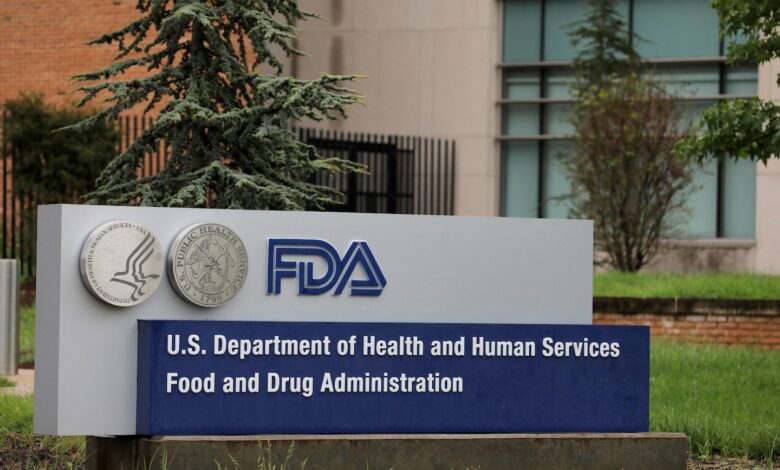FDA to allow Florida to import prescription drugs from Canada

“The FDA is committed to working with states and Indian tribes that seek to develop successful section 804 importation proposals,” Robert M. Califf, FDA’s commissioner, said in a statement. “These proposals must demonstrate the programs would result in significant cost savings to consumers without adding risk of exposure to unsafe or ineffective drugs.”
Before Florida can import the drugs, it must secure FDA approval regarding the specific drugs it seeks. Florida will be responsible for ensuring the integrity of the supply chain, reporting when patients have bad reactions to drugs and complying with recalls. But the pharmaceutical industry has already signaled it intends to fight the plan.
“We are deeply concerned with the FDA’s reckless decision to approve Florida’s state importation plan,” Stephen J. Ubl, chief executive of the Pharmaceutical Research and Manufacturers of America (PhRMA), said in a statement. “Ensuring patients have access to needed medicines is critical, but the importation of unapproved medicines, whether from Canada or elsewhere in the world, poses a serious danger to public health,” he said, adding that the industry’s largest trade and lobbying group is “considering all options for preventing this policy.”
The Florida governor’s office did not respond to a request for comment.
The New York Times first reported the FDA’s decision.
The FDA’s move comes at a time of intense focus by the Biden administration to tackle the high price of prescription drugs, and as major players in the pharmaceutical industry are also shifting their strategies in an aim to make drugs more affordable and accessible.
Eli Lilly said Thursday it would provide its popular weight-loss and diabetes drugs directly to patients through a telehealth service, an uncommon move for a drugmaker, in a bid to make it easier for patients to access its medicines. CVS said last month it plans to revamp drug pricing at its vast network of pharmacies starting in 2025, a shift that industry analysts said could have far-reaching effects on what consumers pay for prescriptions at the counter. Price cuts by Novo Nordisk and Sanofi for their insulin took effect this month, joining Lilly, which slashed its insulin prices last year.
The Biden administration, too, has launched various efforts to tame the high cost of prescription drugs, from studying new models to lower costs for Medicare and Medicaid beneficiaries, to the Federal Trade Commission adopting a more aggressive posture on pharmaceutical mergers. The administration’s biggest such push is the Inflation Reduction Act, which will set a maximum price for how much drugmakers are reimbursed for certain drugs through Medicare.
Many purchasers of prescription drugs, like hospitals and pharmacy-benefit managers, expect the cost of brand-name drugs to rise over the next three years, analysts at TD Cowen said in a research note Friday, citing the results of a survey the investment bank has conducted for 29 years. The survey found that the IRA is expected to have only a modest effect on pricing in the near term.
“We believe U.S. drug prices will continue to increase because the innovation that many medications provide offers real benefit to patients,” the analysts wrote, adding that “as long as biopharma continues to deliver innovation, we see no change in the upward trend in drug prices.”
Canada, whose government has various levers to lower the cost of prescription drugs, has long been eyed by individuals and states as a source of obtaining pharmaceuticals at a discount. A 2021 report by the Rand Corporation found that Canadian prices were just 46 percent of those in the U.S.
It is illegal in most cases for individual Americans to buy drugs from abroad, according to the FDA, which says that drugs from other countries haven’t been approved for use and sale in the U.S. There are exceptions for over-the-counter drugs purchased abroad with no known serious health risks, or if a foreign drug treats a serious condition for which there is no effective therapy available domestically.
Florida formally applied with the FDA to import drugs from Canada in November 2020, according to a lawsuit it later filed against the agency, seeking a court order requiring FDA to rule on its proposal. During the initial phase, Florida said it would import prescription drugs that treat HIV, diabetes, hepatitis C and mental illness, adding they would be available to Medicaid recipients and patients at state-run facilities and prisons. If the initial import program is successful, Florida said in its suit, the state’s legislature “could expand it to allow for private importation and sale of prescription drugs from Canada.”
The importation program could save Florida taxpayers up to $150 million, the state said in its lawsuit.
Other states have submitted proposals to FDA that would allow them to import prescription drugs, the agency said, but a spokesperson wouldn’t comment on whether it is nearing a decision on any other cases.




